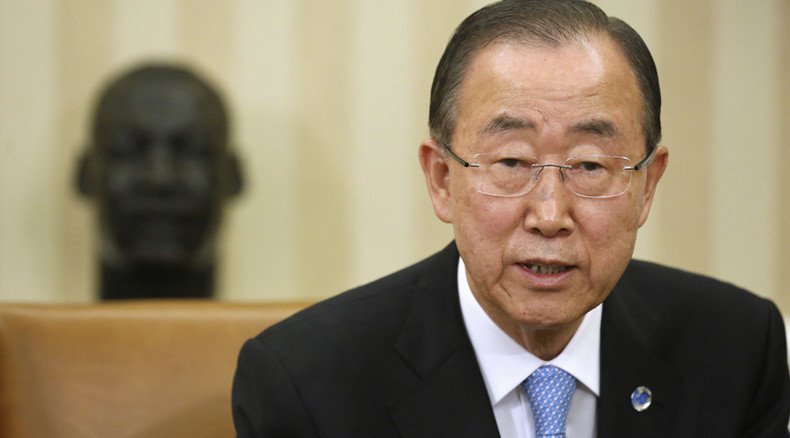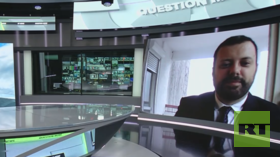‘Nagasaki must be the last’: UN chief urges global nuclear disarmament

The UN chief has urged the world to get rid of nuclear weapons at a commemoration ceremony marking the 70th anniversary of the US nuclear attack on Nagasaki – the second, and fortunately the last – bombing in the history of nuclear warfare ... so far.
“Nagasaki must be the last. We cannot allow any future use of nuclear weapons. Their humanitarian consequences are too great,” Ban Ki-moon’s message said as he addressed thousands through his representative at the Peace Memorial Ceremony in one of two cities which faced the unprecedented wrath of atomic weaponry seven decades ago.
“I wholeheartedly join you in sounding a global rallying cry: No more Nagasakis. No more Hiroshimas,” he added, echoing the his message of nuclear nonproliferation delivered on Thursday in Hiroshima, the first city to have suffered the nuclear bombing.
Few people on the planet remember the fateful day when the US decided to obliterate the second Japanese city, despite the historic consensus that after Hiroshima, Washington had already emerged victorious in the over Japan in World War II in the Pacific.
“As the average age of [survivors] passes 80, I feel a growing sense of urgency to honour their legacy by finally ridding the world of nuclear weapons,” the UN chief added.
At 11:02am on August 9, 1945, instant death reached some 80,000 people when a plutonium implosion-type bomb, dubbed Fat Man, changed the course of history and warfare’s rules of engagement. A few days earlier, on August 6, an uranium gun-type atomic bomb, known as Little Boy, was dropped on Hiroshima.
Nagasaki saw itself burn to the ground. The few thousands who survived would die from radioactive exposure in the following days, years and decades. The UN estimates that in total more than 200,000 people died from nuclear radiation, shock waves from the blasts and thermal radiation resulting from bombing of Hiroshima and Nagasaki.
Additionally, some 400,000 more people died – and are continuing to die – since the end of the Second World War from the impact of the bombs, from after-effects caused by radiation exposure, damaging DNA and other molecular structures within cells.
Seven decades later, the proliferation of nuclear material and weaponry remains the number one security challenge in the world. Over the years, in an ironic paradox, nations have since been seeking to obtain the most powerful weapon in the world in order to enhance their own security.
Even though the US was and still is the only country to have used the nuclear bomb against its enemies, there are eight sovereign states that have successfully detonated nuclear weapons, as part of atmospheric, underground underwater trials. The timelapse video below reflects the nuclear blasts tests over the last 70 years.
The last Soviet leader, and Noble Peace Price recipient, Mikhail Gorbachev, this week reminded the world that nuclear weapons can easily “wipe out the entirety of civilization”.
He stressed that “everyone will lose, including those now seeking to dominate the world.”
READ MORE: Gorbachev calls US military might 'insurmountable obstacle to a nuclear-free world'
The 84-year-old politician, who in his capacity as Russia’s premier worked with his US counterpart to reduce nuclear stockpiles, highlighted that the possession of nuclear weapons is “unacceptable” and “inhumane” in modern society.
Demilitarization should be put “back on the agenda of international politics,” believes Gorbachev. “This includes a reduction of military budgets, a moratorium on the development of new types of weapons and a prohibition on militarizing space.”
LISTEN MORE:













